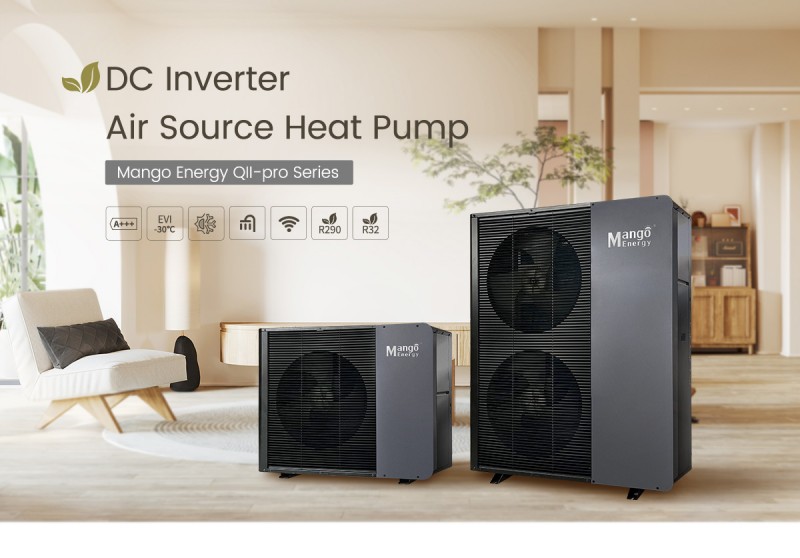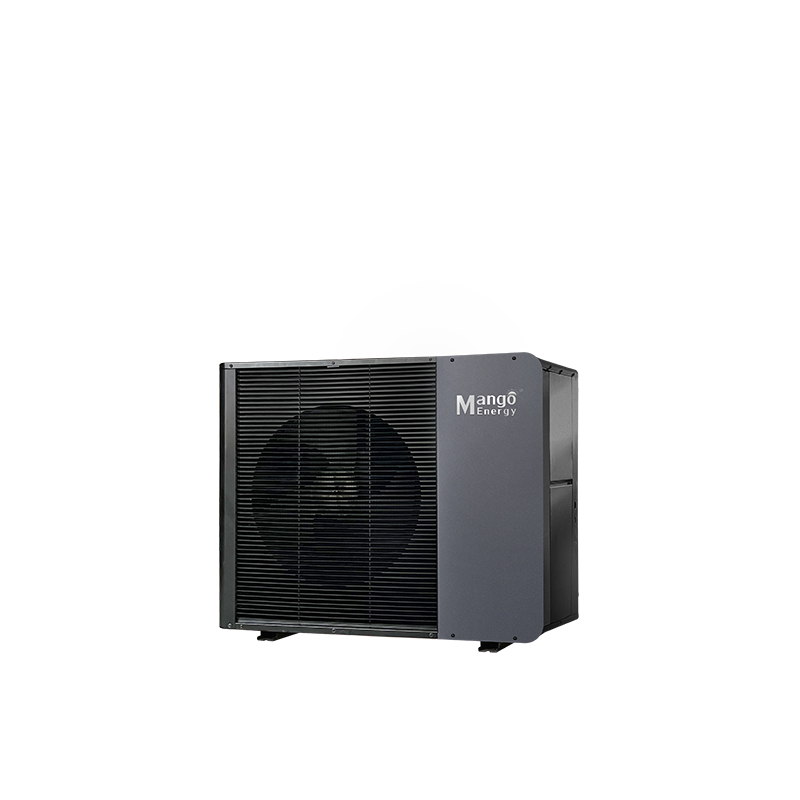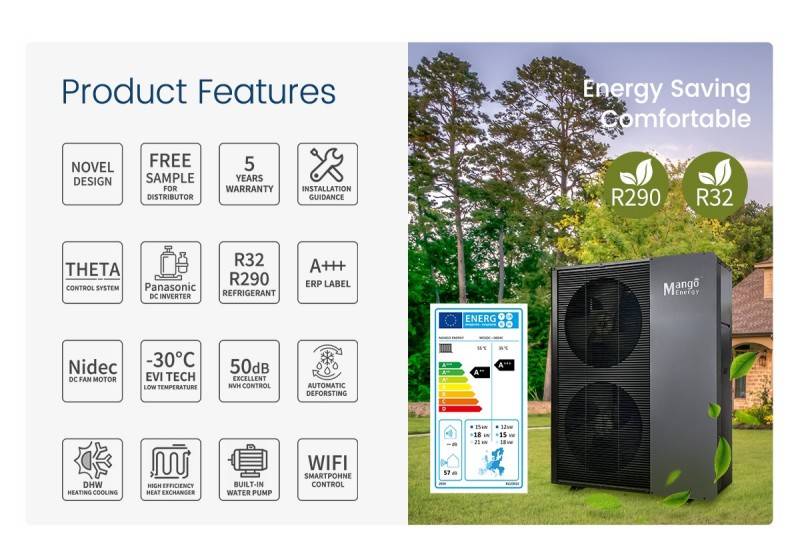
Air source heat pumps have become a popular solution for efficient and eco-friendly heating, but how do they perform in ultra-low temperature environments? Understanding their functionality, benefits, and limitations is crucial for homeowners and businesses considering this technology. This article will discuss how modern air source heat pumps cope with extreme cold, with insights into the role of leading heat pump manufacturers, commercial heat pump solutions, and innovations from heat pump companies around the world.
The Challenge of Ultra-Low Temperatures
Air source heat pumps work by extracting heat from the outside air and transferring it indoors. While this process is highly efficient in moderate climates, extremely low temperatures pose a challenge because the available heat in the air decreases significantly. As a result, the performance and efficiency of conventional air source heat pumps can decline in sub-zero conditions. However, modern technology and advancements by geothermal heat pump manufacturers and commercial heat pump innovators have led to significant improvements.

Technological Innovations in Cold Climate Heat Pumps
Heat pump manufacturers have introduced several adaptations to ensure that their systems remain effective even in ultra-low temperatures. Some of these advancements include:
Enhanced Compressor Technology: Modern air source heat pumps often feature advanced variable-speed compressors that can adjust output according to temperature fluctuations. These compressors help maintain efficiency and reduce energy consumption during cold weather.
Inverter Technology: Inverter-driven heat pumps regulate the motor speed, allowing the system to run more efficiently and maintain consistent performance even in freezing temperatures.
Supplemental Heating Elements: Many air source heat pumps now come equipped with backup electric heaters that activate when temperatures drop significantly. This ensures a steady supply of heat without sacrificing comfort.
Cold Climate Optimization: Some leading heat pump companies have designed models specifically for cold climates, incorporating specialized refrigerants and frost-resistant components to enhance heat absorption.
The Role of Monobloc Heat Pumps
Monobloc heat pumps are an innovative type of air source heat pump that integrates all components into a single outdoor unit. This compact design minimizes potential heat loss and simplifies installation, making them particularly well-suited for environments where space is limited or when retrofitting older buildings. Monobloc systems often come pre-configured for efficient cold-weather operation, making them a valuable option for colder climates.

Benefits for Commercial Applications
For businesses, the reliability of a commercial heat pump in ultra-low temperature environments is essential for uninterrupted operations. Commercial-grade heat pumps are built with robust systems that can withstand extreme temperatures. Heat pump manufacturers often design these systems with larger capacity units, enhanced defrost cycles, and higher-grade materials that contribute to durability and consistent heating.
The Role of Geothermal Solutions
While air source heat pumps have adapted to handle colder temperatures, geothermal heat pump manufacturers provide an alternative solution for those in consistently frigid regions. Geothermal systems draw heat from the ground rather than the air, maintaining a stable and efficient heat source even in the harshest conditions. Although more costly to install, these systems offer unparalleled efficiency and reliability, making them an attractive option for businesses and homeowners seeking a long-term solution.
Choosing the Right Heat Pump
Selecting the right heat pump involves considering the specific climate and the capabilities of the system. Consult with reputable heat pump companies to find systems designed with advanced cold-climate technology. Many manufacturers offer models tested and proven to perform in sub-zero conditions.

Conclusion:
Air source heat pumps have come a long way, with innovations by leading heat pump manufacturers ensuring that even ultra-low temperatures can be effectively managed. Whether through monobloc heat pump designs, inverter technology, or supplemental heating elements, these systems provide reliable and eco-friendly heating solutions. For those in extremely cold environments, geothermal heat pump manufacturers offer an alternative worth exploring. By choosing the right system, homeowners and businesses can enjoy efficient heating regardless of the season.
FAQ:
Q: Can air source heat pumps work in temperatures below freezing?
A: Yes, modern air source heat pumps equipped with advanced technology and supplemental heating elements can work effectively in temperatures well below freezing.
Q: Are monobloc heat pumps suitable for commercial use?
A: Yes, monobloc heat pumps are often used in commercial settings due to their compact design and efficiency in cold climates.
Q: What is the difference between air source and geothermal heat pumps?
A: Air source heat pumps extract heat from the outside air, while geothermal heat pumps draw heat from the ground, providing a more stable and efficient heat source in extremely cold environments.
Q: Do air source heat pumps require additional heating sources?
A: Some models come with built-in supplemental heating elements to maintain performance during ultra-low temperatures.


